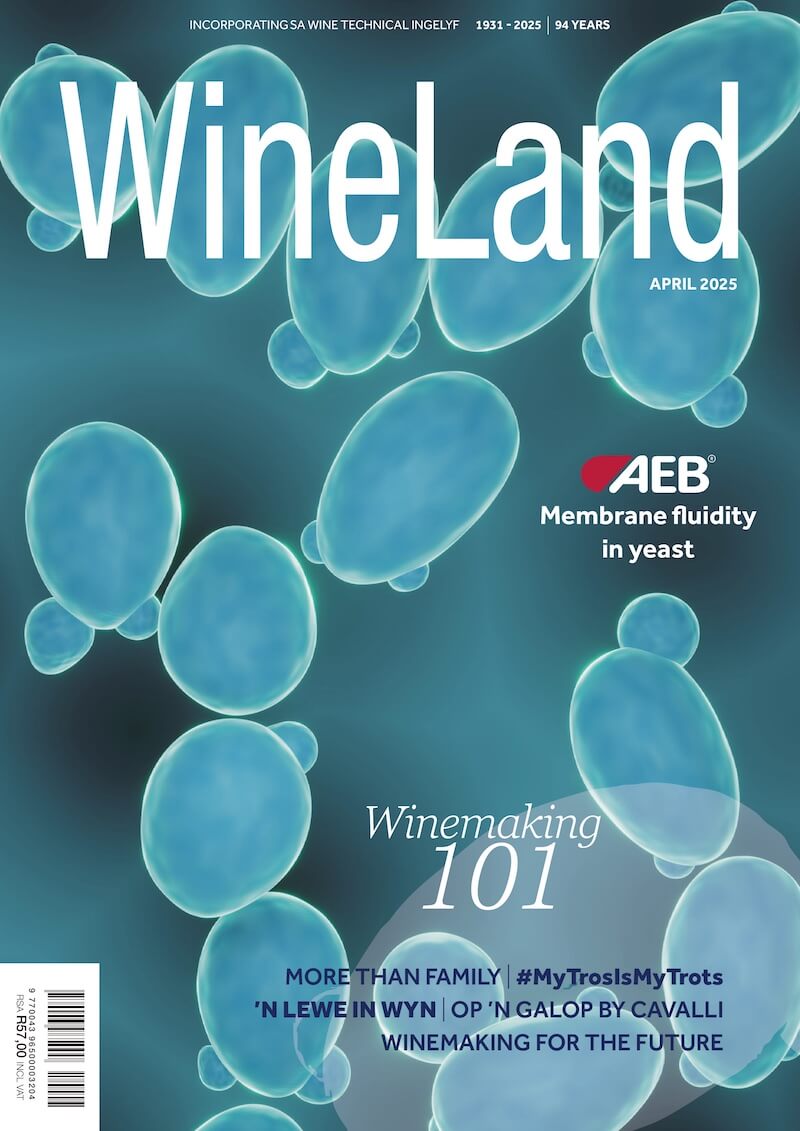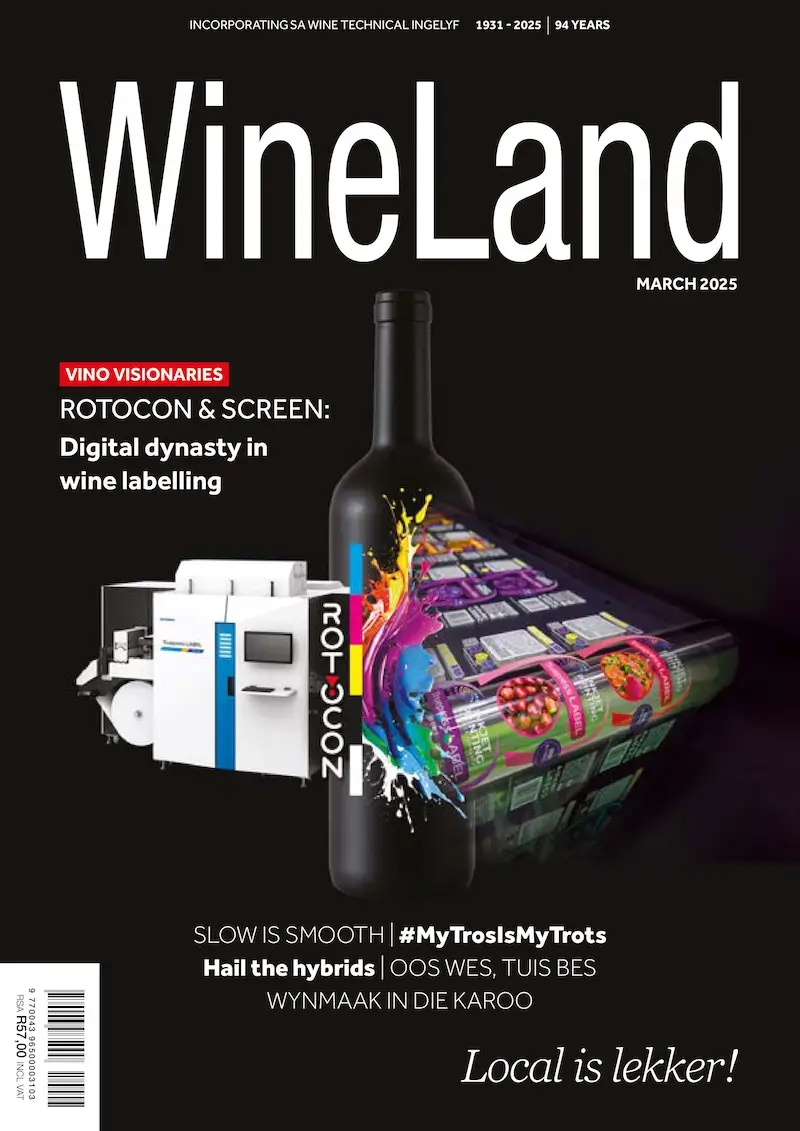 CORK VS CORK ALTERNATIVES
CORK VS CORK ALTERNATIVES
Are you a winemaker who needs natural cork? Does it suit your winemaking style and vision? How do you make your wines? Reductive, oxidative, with long- or short-term ageing potential? Who are your clients and does the wine reflect their requirements? Will they drink it within the first two years or do the wine gurus among them plan to store it for at least five years?
What about you? What are your goals? Where do you see yourself in five years’ time? Where must your wine be? Do you respect the sommelier who relishes sensually turning the bottle opener into the cork and presenting it with pride on the client’s plate?
The answers to these questions all depend on one thing: Your passion for your job as a winemaker and involvement in the vineyard’s yearly cycles. Because ultimately it’s that intimate understanding of the final product and being at one with your wine that tell you which closure to use.
We’re all aware of the differences between traditional corks and their alternatives. Both can do the job but the choice isn’t about whether you love or hate natural cork, it’s about how smart you are about understanding the wine. It’s almost like a work of art, where someone can spend hours trying to understand the artist’s thinking and intentions, while another person might walk away after 10 seconds and carry on with their life. The same happens when we wonder why a winemaker has decided to use cork.
If you make easy-drinking, playful wines that focus on aromatic primary flavours or you know the wines will be on the shelves by August of the harvest year and people are desperate to drink it immediately, why spend the extra money on cork, especially if you consider a cork tree takes years to grow its bark. If you know your style of wine doesn’t really reflect its terroir and won’t benefit from ageing, why use cork? If you know the wine doesn’t need the slow absorption of oxygen to reveal its secrets after being bottled, why go the cork route?
On the other hand if you’re someone who makes truly excellent wines that show off their terroir and are made naturally because the vineyard is in complete balance, if you don’t need yeast cultures or additives such as tartaric acid that could destabilise the wine in the short or long term, and if you know your wines are best enjoyed after a few years of ageing, you should consider natural cork. It retains its elasticity, feels the seasons and slowly releases the oxygen trapped in its porous structure. With a cork closure your wine can withstand the test of time and come out on top!
Take a Riesling, for example. For this queen of grapes, cork watches over its journey from bottle to glass. In short, a complex wine that requires plenty of energy and labour and whose character reflects an area must have natural cork in its throat. It deserves nothing less.
Koen Roose,
Spioenkop owner and winemaker
Almost a quarter of a century ago I handed in a chemistry project at the University of Adelaide. It was on cork taint and more specifically 2, 4, 6 trichloroanisole. I’ve been fascinated by corks and other closures and their interaction with wine ever since.
Corks are wonderfully evocative and dramatic. They represent centuries of tradition and bring unequalled theatre to opening a bottle. You need a special gadget to prize them out, which is cool, because we all like gadgets. They’re a natural product, evoking images of an industry mindful of the ecology.
My experience from travelling globally is that most winemakers would rather use a cork alternative. One reason some don’t, is that when you use an alternative closure you have to be prepared to be both a winemaker and wine educator.
Many winemakers have this love-hate relationship with cork. Like most I’ve had to compromise and use cork because it makes it easier to sell expensive wine to uneducated wine buyers. I’ve learnt to live with the nightmare of the inevitable faulty cork that turns all winemakers into Russian roulette players.
For the perfectionists among us, there’s no contest – cork is flawed and will harm your life’s work. For others the angst of using cork is just too emotionally debilitating and stressful.
As an alternative, technical corks such as Diam have proved their worth and appear to be improving. Early experimentation at Flagstone indicated scalping of aromas, but more recent trials look much better. The best thing about technical corks is that most consumers perceive them as real cork. I’ve been using them for my Spanish wine for more than 10 years.
I’m still unconvinced that the new wave of no-detection corks (of 2, 4, 6 TCA) are 100% failsafe. I’m not the only winemaker to have paid the extra money for these corks only to have had cork taint issues. But I would still use these over unselected cork, and it’s commendable that forward-thinking cork producers are trying their best to eradicate 2, 4, 6 TCA contamination from their products. Please keep it up because the key to unlocking a rosy future for cork is not in fancy marketing or PR that knocks the alternatives, it’s in getting rid of cork taint.
Screw caps are technically the best cork alternatives for wine and also the best value. But they have their shortcomings: They require careful, expert application; they’re not robust and damage easily when knocked. Crucially, screw caps aren’t forgiving of sloppy winemaking so exacerbate H2S and mercaptan issues. Despite these drawbacks, screw caps are superior to cork as a wine closure in almost every aspect, including wine’s ageability.
The only thing I don’t like about screw caps is the plastic liner and film of clear plastic covering the liner. Saran or polyvinylidene chloride (PVDC) has been around since the ’30s and is almost omnipresent in the food industry. While it’s deemed safe, we have too much plastic in the world and plastic in general isn’t beneficial for the environment. It would be great if producers of screw-cap liners could develop a natural alternative. Maybe they should try TCA-free cork.
There have been some excellent wines closed under crown cap, most notably Niels Verburg’s Saboteur red and white. This is not only a hip alternative for cork, it’s also technically superior. If we had better value crown cap bottles, I think we would see an increase in the use of these closures.
Bruce Jack
Group winemaker, Accolade Wines
Owner, The Drift Farm Overberg Highland
Winemaker, LA Bascula, Spain













